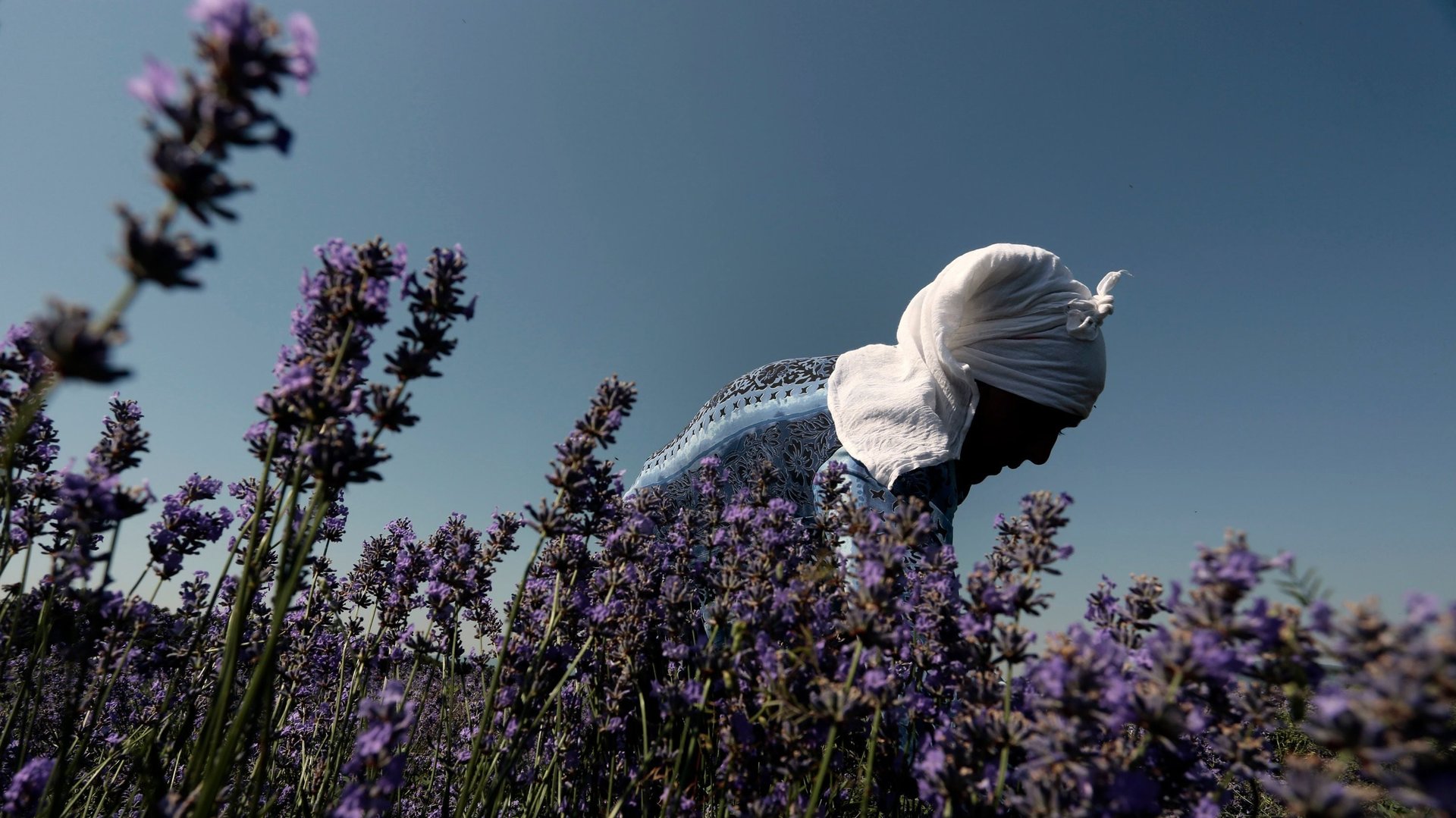A new study confirms that smelling lavender can relax you
Lavender—purple, pretty, and fragrant—is a darling of the wellness world. From soothing bath soaks to luxury candles, lavender has long been used in aromatherapy and marketed in beauty products as an ingredient that helps promote calmness. And while many studies have shown lavender’s relaxing effect, research has not proven the importance of actually smelling it (compared to consuming it or using it topically) until now.


Lavender—purple, pretty, and fragrant—is a darling of the wellness world. From soothing bath soaks to luxury candles, lavender has long been used in aromatherapy and marketed in beauty products as an ingredient that helps promote calmness. And while many studies have shown lavender’s relaxing effect, research has not proven the importance of actually smelling it (compared to consuming it or using it topically) until now.
In a new study published today (Oct. 23) in Frontiers in Behavioral Neuroscience researchers found compelling evidence that the stress relief that comes from lavender comes the way that linalool, an alcohol that occurs naturally in the plant, activates certain neurotransmitter receptors in the brain via olfactory neurons.
“In folk medicine, it has long been believed that odorous compounds derived from plant extracts can relieve anxiety,” Hideki Kashiwadani, a physiology professor at Kagoshima University in Japan, and one of the study’s co-authors, said in a press release. In the modern beauty world, numerous brands have also marketed the scent as calming and covetable.
And while there have been investigations into the effects of lavender oil on lowering blood pressure and improving moods, and the calming effect of lavender at bedtime, there was no targeted research into why smelling it might have contributed to this effect. Many of these studies involved test subjects inhaling linalool, but “the sites of action of linalool were not addressed in these studies,” Kashiwadani said.
Kashiwadani led a team of researchers from Kagoshima University, who tested linalool vapor on mice and observed the animals’ behavior. The mice exhibited similar behavior as they would on anti-anxiety medications, such as commonly prescribed benzodiazepines like Xanax. But “notably, this did not impair their movement,” Kashiwadani said, as happens with many anti-anxiety medications.
Further, the linalool vapor had no calming effect in mice whose olfactory neurons were destroyed, or in normal mice whose GABAA receptors, which are the neurotransmitter receptors that respond to anti-anxiety medications, were blocked. The implications are twofold: First, relaxation associated with linalool is specifically triggered by olfactory signals, and second, linalool doesn’t directly activate GABAA receptors the way anti-anxiety medications do.
“When combined, these results suggest that linalool does not act directly on GABAA receptors like benzodiazepines do—but must activate them via olfactory neurons in the nose in order to produce its relaxing effects,” Kashiwadani said. In previous studies, mice fed or injected with linalool might only have exhibited relaxation because they smelled the compound “emitted in their exhaled breath,” he said.
While the researchers note that more studies on the effect of smelling linalool (and lavender) in animals are needed before human trials take place, the prospect of treating anxiety without the sedative effects of medications like benzodiazepines is promising. So too, is the marketing potential for the wellness industry, and natural beauty brands that already tout lavender’s appeal.